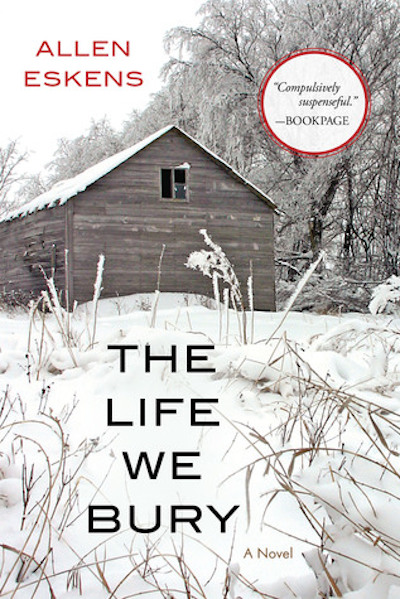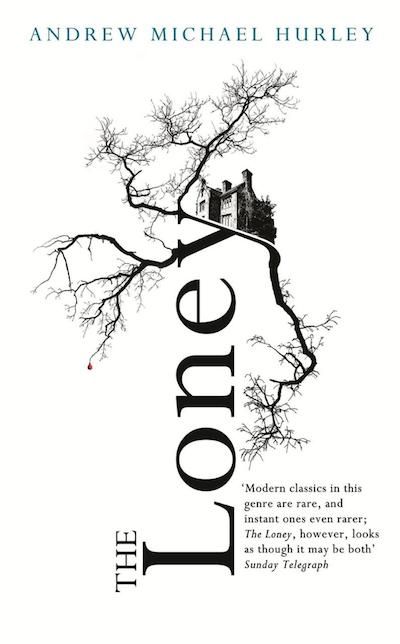
Marriage is a once-indomitable institution in decline. Books like Rebecca Traister’s All the Single Ladies and Kate Bolick’s Atlantic article of the same name confirm this for us. We’re getting married less, and staying married less often.
So what should we do about it? In Michelle Richmond’s thriller The Marriage Pact, power couples have decided to take the power of marriage back, by any means necessary. Meet the namesake Pact, a secret society intent on developing great marriages. Think of a chic, jetsetting, Scientology-esque group of obsessive mate-pleasers.
But just what makes a successful marriage? When Alice and Jake are invited to join the secret club after their wedding, they’re all in. Every newly-wedded couple can use some help, right? What sounds simple becomes a controlling and torturous power game, as The Pact takes things to another level. Spousal support of all kinds is demanded, and The Pact will be there to enforce the rules when they aren’t followed.
Sure, it sounds cheesy, right? And it is, a bit. The best thrillers are aware of the genre and not afraid to dive on into the deep end. Or they draw themselves on out of it and head away from the genre entirely. But I digress. I judge straight thrillers solely on how well they keep me craving the next page, drawing me forward into the story, not on how well they reinvent the wheel. The Marriage Pact had me falling deeper and deeper through a rabbit hole of exhausting demands with Alice and Jake. The novel’s exploration of society’s expectations of marriage was an interesting and thoughtful twist, like slowing down to peer at emotional wreckage while speeding ahead on a thrill ride.
While this was one thrill ride I thoroughly enjoyed, I was disappointed when it abruptly ended and I was forced to get off. The Marriage Pact‘s ending was the book’s only letdown, as it felt forced, but perhaps left an opening for a follow-up. I didn’t buy the character’s choices in the last few pages, but of course I’ll buy the sequel if there is one. I’m a lover, not a fighter. Pact, I’m here for you, ’till death do us part.
The Marriage Pact (out July 25) on Amazon.com/Powell’s.com/Indiebound.org








 This book has all the things I hold dear to my heart. A slightly unhinged narrator. A wacky alcoholic family member. A boy’s home for adolescent offenders. A beautiful woman with dishonorable motives. And a bunch of raw nervous energy. You can read my
This book has all the things I hold dear to my heart. A slightly unhinged narrator. A wacky alcoholic family member. A boy’s home for adolescent offenders. A beautiful woman with dishonorable motives. And a bunch of raw nervous energy. You can read my  The Truth and Other Lies is bitingly funny. Its cool narrator, a man taking credit for his wife’s blockbuster novels, steers the plot headlong into disaster. My
The Truth and Other Lies is bitingly funny. Its cool narrator, a man taking credit for his wife’s blockbuster novels, steers the plot headlong into disaster. My  I see this one becoming a cult classic, if anything published by William Morrow and nominated for a Goodreads Reader’s Choice Award could ever be considered cult. The one word used to describe this horror novel is meta. This is a horror novel fully aware of horror novels, and films, and all the better for it. My
I see this one becoming a cult classic, if anything published by William Morrow and nominated for a Goodreads Reader’s Choice Award could ever be considered cult. The one word used to describe this horror novel is meta. This is a horror novel fully aware of horror novels, and films, and all the better for it. My  I absolutely loved the premise of this one so much I had to go out and get a copy. A woman picks up a book and begins to read the story of her life. She notices the disclaimer in the front, that one that ensures the story isn’t based on true events, is crossed out. Who wrote the book? How did it get to her? My
I absolutely loved the premise of this one so much I had to go out and get a copy. A woman picks up a book and begins to read the story of her life. She notices the disclaimer in the front, that one that ensures the story isn’t based on true events, is crossed out. Who wrote the book? How did it get to her? My  Unless you were living under a rock this year, you are familiar with this one. It was a runaway hit, hailed as this year’s Hitchcock-ian Gone Girl. Rachel watches an ideal couple each morning from the commuter train. When the wife of the couple shows up missing on the news, Rachel places herself into the investigation. Read my
Unless you were living under a rock this year, you are familiar with this one. It was a runaway hit, hailed as this year’s Hitchcock-ian Gone Girl. Rachel watches an ideal couple each morning from the commuter train. When the wife of the couple shows up missing on the news, Rachel places herself into the investigation. Read my  This is a bit of a cheat, as I had a copy of this last year. Random House UK released this in 2014, but it was released in the US this year by Picador with a beautiful new cover. Black Chalk brings a psychological Hunger Games to Oxford University. Six incredibly close friends agree to a game run by the mysterious ‘game soc’ club at their school. The game becomes more involved, taking over their lives, as the students begin to lose control. My
This is a bit of a cheat, as I had a copy of this last year. Random House UK released this in 2014, but it was released in the US this year by Picador with a beautiful new cover. Black Chalk brings a psychological Hunger Games to Oxford University. Six incredibly close friends agree to a game run by the mysterious ‘game soc’ club at their school. The game becomes more involved, taking over their lives, as the students begin to lose control. My  Let’s throw a little bit of near-future climate fiction on here, shall we? The Water Knife is brilliant because it pushes what is happening now just a bit farther, and magnifies it into something shocking. States are battling for water rights, and water knives slip through the night to bomb water plants and kill the right people, ensuring powerful cities stay wet. If you like drinking water, read this book. My
Let’s throw a little bit of near-future climate fiction on here, shall we? The Water Knife is brilliant because it pushes what is happening now just a bit farther, and magnifies it into something shocking. States are battling for water rights, and water knives slip through the night to bomb water plants and kill the right people, ensuring powerful cities stay wet. If you like drinking water, read this book. My  And also we’ll add a tad of magical realism to the list. Bone Gap is a bright and crisp and beautiful young adult novel. I haven’t reviewed it because I’m just not sure what to make of it. As a lover of straight-shooting mysteries and thrillers, its more fantastical elements disappointed me. But does that mean I still don’t think about its lovable, well-crafted characters? Its charming little town? No, of course not. A part of me may always be in Bone Gap.
And also we’ll add a tad of magical realism to the list. Bone Gap is a bright and crisp and beautiful young adult novel. I haven’t reviewed it because I’m just not sure what to make of it. As a lover of straight-shooting mysteries and thrillers, its more fantastical elements disappointed me. But does that mean I still don’t think about its lovable, well-crafted characters? Its charming little town? No, of course not. A part of me may always be in Bone Gap. This isn’t even fiction. This is an exposé of the rape culture on America’s college campuses, with a focus on Missoula, Montana. It is shocking, and an absolute must-read. My
This isn’t even fiction. This is an exposé of the rape culture on America’s college campuses, with a focus on Missoula, Montana. It is shocking, and an absolute must-read. My  How many ways can people die in one book? Books about cartels love to explore this question. I became weary of all the descriptions of death, but at the same time understood it was part of the rough and angry territory of a sprawling epic of the Mexican drug war. Proceed at your own caution–the characters here are masterfully crafted, but also masterfully executed. My
How many ways can people die in one book? Books about cartels love to explore this question. I became weary of all the descriptions of death, but at the same time understood it was part of the rough and angry territory of a sprawling epic of the Mexican drug war. Proceed at your own caution–the characters here are masterfully crafted, but also masterfully executed. My 